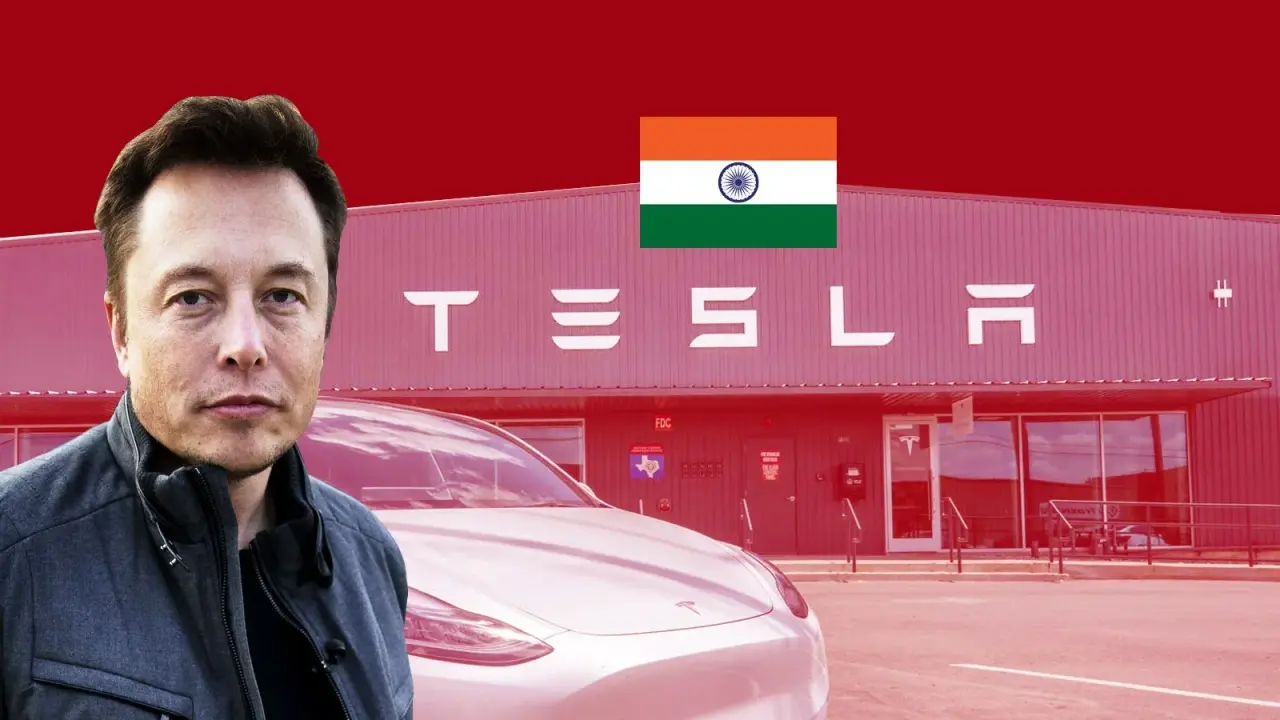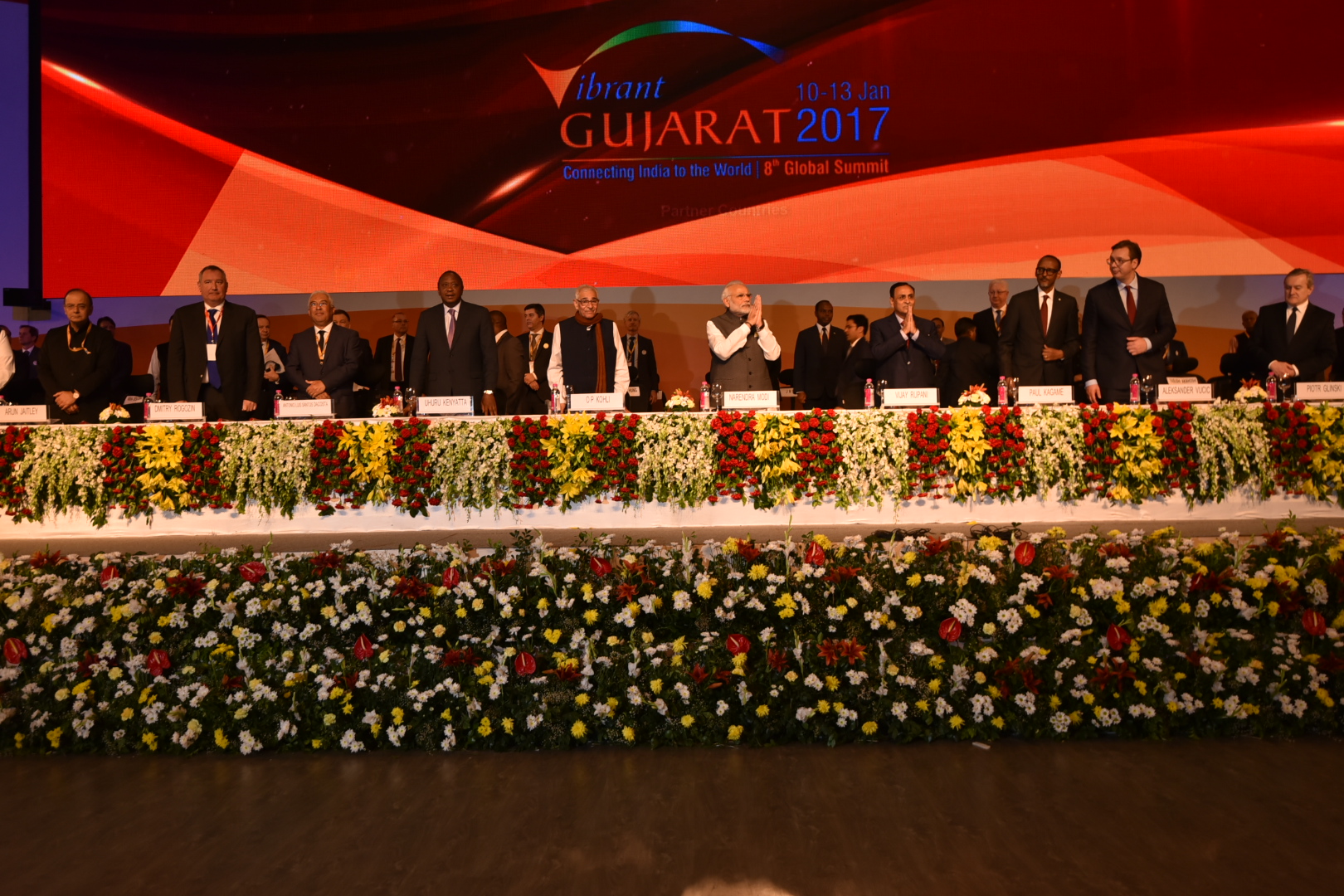Updated 3 January 2024 at 17:04 IST
Will Elon Musk's Tesla be eligible for GOI's PLI scheme?
EXPLAINER | Experts are not sure whether Tesla is eligible for the PLI scheme but Musk may still stand to benefit from revised provisions
- Automobile News
- 7 min read

Tesla's India Entry amid PLI edits: Elon Musk-owned Tesla, which is eyeing a push-and-pull entry to India, is likely to reap the same benefits as other contenders in the newly-amended PLI scheme even as the selection of eligible automotive was done at the inception of the scheme two years back.
Anurag Singh, Managing Director leading automotive practice at Primus Partners said the Elon Musk-owned entity will likely not benefit from the scheme as “selection was done years back,” but added that it will be tough to comment on the development.
Notably, the Vibrant Gujarat event will likely address speculations around Tesla’s entry to India amid their constant engagement with the government.

Advertisement
Vibrant Gujarat 2017, Source: Wikimedia Commons
Notably, companies like Mahindra & Mahindra and Hyundai had opposed Tesla’s entry to India, opposing dual policy in the country for a new entrant.
HS Bhatia, Managing Director of Kelwon Electronics which is into South Korean brand manufacturing said the present scheme puts new and old entrants “on the same pedestal.”
“All major companies were against favours or even relaxing the 'Domestic value addition' for Tesla specifically…there can't be two rules or policies in the country as per them.”
Advertisement
Level-Playing Field?
“Tesla will need over two years for setting up its factory and infrastructure, as compared to players already present in India who will have a headstart in this case. But there must be a way for Tesla’s entry since they are a big brand of EVs,” he added.
Tesla’s entry, Bhatia opined, will also serve the domestic market in India.
Entry a “Game Changer?”
Abhinav Kalia, CEO and Co-Founder of ARC Electric said the potential entry of Tesla into the Indian market is poised to be a “game-changer” for the electric vehicle (EV) landscape.
“Firstly, it brings the promise of expanding the EV market by introducing premium and luxury EV models, a segment currently lacking substantial representation in India. This move aligns with the global trend of making electric vehicles not just sustainable but also desirable,” he said.
Tesla's entry, Kalia elaborated, also brings with it a cutting-edge ecosystem, including advanced battery technology and state-of-the-art manufacturing practices showcased in their Giga Factory.
“This infusion of modern technology and a globally connected supply chain has the potential to elevate India as a serious contender in the international EV arena. Tesla could act as a catalyst, encouraging other players in the market to up their game," he added.
What the Scheme is

Source: Freepik
Highlighting the benefits of the scheme, Bhatia said most of the global OEMs are looking at India as an alternative and even if the country is on the second number in manufacturing, “you will still get billions.”
The scheme also opens leeway for recovering benefits in consequent years if the company does not achieve sales targets for the first year, which is likely a clause added for newer entrants, Bhatia suggested.
He also lauded the scheme for segregating OEMs as well as component manufacturers, thereby incentivising production of components in India at competitive prices and bringing demand back to India from China.
Kalia said the government's effort pushes enterprises to not only produce but also actively sell EVs.
“If manufacturers can continuously achieve these conditions, there is the potential for 100 per cent annual market growth in the future years,” he added.
Why the extension?

Source: Pexels
The scheme, formulated for incentivising new energy vehicles, was extended as the industry took some time navigating the space.
“Any company who has been selected only gets benefits on the incremental eligibility sales, which meets standards of investments, localisation and value-addition. The industry actually took some time to reach that point,” Singh said.
On September 15, 2021, the central government approved the ‘Production Linked Incentive (PLI) Scheme for automobile and auto component Industry in India for enhancing manufacturing capabilities for advanced automotive products (AAT)’ with a budgetary outlay of Rs 259.38 billion to boost domestic manufacturing capacity and attract investments to the automotive manufacturing value chain.
FY 2019-2020 was postulated to be treated as the base year for calculation of eligible sales upon which incentives will be disbursed.
Srikumar Krishnamurthy, Senior Vice President and Co-Group Head - Corporate Ratings, ICRA Limited said the one-year shift in tenure will help companies combat delay in issuance of compliance certificates to OEMs and component manufacturers, the potential beneficiaries of the scheme.
“While this is effectively a shift in tenure by a year, this is a welcome step as it provides the eligible entities to benefit from the same (or avail subsidies) in an effective manner. One of the key eligibility conditions under the scheme include establishing the local value addition, apart from other factors like achieving minimum threshold of investments and turnover. Specifically, given the non-clarity over the value addition computations, there were delays in issuance of compliance certificates to OEMs and component suppliers. With the one-year shift in tenure, the eligible entities shall now have the full benefit of the scheme," he said.
The flexibility provided to the entities which fails to meet the thresholds prescribed for increase in ‘determined sales value’ also aims at providing a level playing field for all entities, especially who have made large upfront investments, he added.
Benefits to players
“The amendment allows such entities to claim the benefits in the ensuing year upon meeting the thresholds which is calculated on the basis of a 10 per cent year-on-year growth over the initial year’s benchmark, and thereafter for the next four consecutive years from when the incentive under the scheme becomes applicable,” Krishnamurthy said.
Anmol Singh Jaggi, Co-founder & CEO at EV cab-hailing company BluSmart said the PLI extension is a welcome move and imposition of lesser restrictions introduced on recipients in the automotive industry is going to boost the EV industry further.
“For a company like BluSmart this ensures an expanded supply base, not only giving us a wider choice of vehicles, but also encourages potential cost reduction through auto components and EVs produced indegenously in larger volumes,” he added.
BluSmart, founded in 2019, had recently raised $24 million from existing investors, its second raise in 2023 after a $42 million fundraise in May.
Strategic Play
Notably, the auto PLI scheme was originally for 5 years from FY23-FY27. The companies get PLI benefits on 'incremental eligible sales', which means they should have increased their manufacturing capacity, and then produced and sold above the baseline. Almost none of the selected companies could achieve this in FY 23, as the capacity addition takes time in the automobile industry. The Government listened to the industry feedback and increased the period from 5 years to 6 years ending in FY28.
Sonam Srivastava, Founder and Fund Manager at Wright Research, PMS said the extension is “not just a relief measure, it's a strategic initiative to enhance the industry's global competitiveness and encourage the adoption of advanced technologies, including electric and autonomous vehicles.”
The success of the PLI scheme, however, hinges on its effective implementation, she added, saying that it requires a synergistic approach between the government and industry players to ensure that it meets its goals of increasing production, drawing investments, and technological advancement, aligning with India's 'Make in India' vision.
Investments on the table

Source: Freepik
According to credit rating agency ICRA, key industry players are expected to make fresh investments (expected to be over Rs 425 billion) over the next five years, translating to an incremental production of over Rs 2.3 trillion.
In FY23 when the scheme was announced, the companies focused investments on developing the ground-up operations for renewable vehicles to augment technology. A representation sought one year more to on-track the operations, Singh explained.
Notably, several companies have started production with Tata Motors having claimed incentives for the scheme first.
Approved applicants include listed firms Ashok Leyland, Eicher Motors, Mahindra and Mahindra, along with Bajaj Auto Limited, Hero MotoCorp and TVS Motor Company. Ola Electric was among the newer applicants.
Other applicants who made it to the list include Ford India, Hyundai Motor and Kia India.
Amit Kumar, CEO And CO-Founder of RAMP Global, a cloud-based software solutions company for the automotive industry said the PLI plan has the potential to drastically alter the landscape by promoting domestic manufacturing, technological advancements, and job creation.
“Amendments and extensions address specific demands and give potential investors with increased predictability and stability,” he added.
Published By : Gauri Joshi
Published On: 3 January 2024 at 09:18 IST
